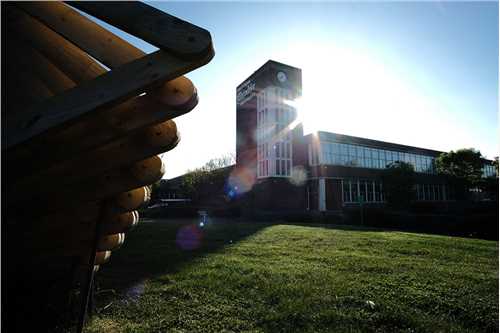 雷克瑟姆-格林德沃大学正在开发一个旨在开发人工智能扫雷方法的地雷研究项目。 该项目目前正处于开发阶段,由计算机专业博士生亚历山大·布鲁克鲍尔开发,他正在计算机期货教授vic-print的指导下构建该模型。 总部位于汉堡的亚历山大说:“我的想法是基于这样一个假设,即没有什么东西是完全随机放置的。 “布雷遵循规则,是按顺序进行的,所以我认为应该有可能通过机器学习,只使用已经发现的地雷的位置,来尝试找出地雷是如何放置的。 “然后,通过一个经过训练的模型,该模型可以以一定的概率预测下一个地雷的位置。 目前,该项目正由亚历山大根据其最初的理论进行开发,亚历山大在薄教授的监督下在德国的家中远程工作。 然而,随着它的发展,他正在寻求任何能够提供与扫雷有关的真实世界数据的人的帮助。 他说:“我在现实世界中面临的数据挑战是,我还无法获得实际雷区中已发现地雷的位置。 “有一些军事手册详细说明了如何埋设地雷,也有关于世界某些地区如何以特定模式或集群埋设地雷的示意数据,以及地雷部署系统自动部署的地雷模式。 “根据这些过程、规则和模式,我现在正试图编程一个训练数据生成器,该生成器将生成矿场模式,一旦完成,我将用于训练机器学习模型。 但这些数据仍然是“唯一”的合成数据,这可能足以证明原理或创建概念验证——因此,真实世界的数据将大大有助于改进训练数据集,也可以更好地评估和评估系统的性能。 但这些数据仍然是“唯一”的合成数据,这可能足以证明原理或创建概念验证——因此,真实世界的数据将大大有助于改进训练数据集,也可以更好地评估和评估系统的性能。
雷克瑟姆-格林德沃大学正在开发一个旨在开发人工智能扫雷方法的地雷研究项目。 该项目目前正处于开发阶段,由计算机专业博士生亚历山大·布鲁克鲍尔开发,他正在计算机期货教授vic-print的指导下构建该模型。 总部位于汉堡的亚历山大说:“我的想法是基于这样一个假设,即没有什么东西是完全随机放置的。 “布雷遵循规则,是按顺序进行的,所以我认为应该有可能通过机器学习,只使用已经发现的地雷的位置,来尝试找出地雷是如何放置的。 “然后,通过一个经过训练的模型,该模型可以以一定的概率预测下一个地雷的位置。 目前,该项目正由亚历山大根据其最初的理论进行开发,亚历山大在薄教授的监督下在德国的家中远程工作。 然而,随着它的发展,他正在寻求任何能够提供与扫雷有关的真实世界数据的人的帮助。 他说:“我在现实世界中面临的数据挑战是,我还无法获得实际雷区中已发现地雷的位置。 “有一些军事手册详细说明了如何埋设地雷,也有关于世界某些地区如何以特定模式或集群埋设地雷的示意数据,以及地雷部署系统自动部署的地雷模式。 “根据这些过程、规则和模式,我现在正试图编程一个训练数据生成器,该生成器将生成矿场模式,一旦完成,我将用于训练机器学习模型。 但这些数据仍然是“唯一”的合成数据,这可能足以证明原理或创建概念验证——因此,真实世界的数据将大大有助于改进训练数据集,也可以更好地评估和评估系统的性能。 但这些数据仍然是“唯一”的合成数据,这可能足以证明原理或创建概念验证——因此,真实世界的数据将大大有助于改进训练数据集,也可以更好地评估和评估系统的性能。 a landmine research project which aims to develop an artificial intelligence approach to mine clearance is being developed at wrexham glyndwr university.the project – which is currently in its developmental stages – is being developed by computing phd student alexander bruckbauer who is working on building the model under the supervision of professor of computing futures vic grout.alexander, who is based in hamburg, said: “the idea im working on is based on the assumption that nothing is completely randomly placed.“mine laying follows rules and is done in sequence, so i think it should be possible to try and figure out the rules how the mines were placed through machine learning, using only the position of the mines already discovered.“then, with a trained model, the model could predict where the next mine is placed with a certain probability.”at the moment, the project is currently being developed from its initial theory by alexander, who is working remotely from his home in germany under professor grout’s supervision. however, as its development progresses, he is looking for assistance from anyone who is able to provide real-world data relating to landmine clearance.he said: “my real-world data challenge is that i cannot - yet - acquire mine positions of found mines in actual mine fields.“there are military manuals that detail how mines are laid and there is also schematic data of how mines are laid in certain patterns or clusters in some regions of the world, as well as the patterns of mines that were automatically deployed by mine deployment systems.“from these processes, rules and patterns, i am now trying to program a training data generator that will produce mine field patterns, which i will then, once its finished, use to train the machine learning model.“but this data is still "only" synthesized data, which might be enough to demonstrate the principle or create a proof of concept – so real world data would help a great deal to improve the training data set and also allows to as evaluate and assess the performance of the system much better. .
a landmine research project which aims to develop an artificial intelligence approach to mine clearance is being developed at wrexham glyndwr university.the project – which is currently in its developmental stages – is being developed by computing phd student alexander bruckbauer who is working on building the model under the supervision of professor of computing futures vic grout.alexander, who is based in hamburg, said: “the idea im working on is based on the assumption that nothing is completely randomly placed.“mine laying follows rules and is done in sequence, so i think it should be possible to try and figure out the rules how the mines were placed through machine learning, using only the position of the mines already discovered.“then, with a trained model, the model could predict where the next mine is placed with a certain probability.”at the moment, the project is currently being developed from its initial theory by alexander, who is working remotely from his home in germany under professor grout’s supervision. however, as its development progresses, he is looking for assistance from anyone who is able to provide real-world data relating to landmine clearance.he said: “my real-world data challenge is that i cannot - yet - acquire mine positions of found mines in actual mine fields.“there are military manuals that detail how mines are laid and there is also schematic data of how mines are laid in certain patterns or clusters in some regions of the world, as well as the patterns of mines that were automatically deployed by mine deployment systems.“from these processes, rules and patterns, i am now trying to program a training data generator that will produce mine field patterns, which i will then, once its finished, use to train the machine learning model.“but this data is still "only" synthesized data, which might be enough to demonstrate the principle or create a proof of concept – so real world data would help a great deal to improve the training data set and also allows to as evaluate and assess the performance of the system much better. .亲,点击此处在线申请留学咨询服务和报名评估!我们将竭诚提供最佳评估服务!